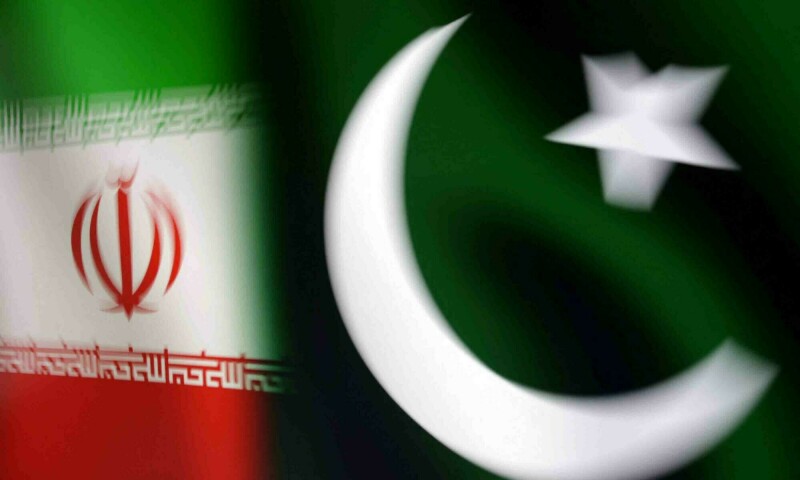
Pakistan and Iran on Sunday agreed to elevate bilateral trade and achieve an annual trade volume of $8 billion, terming the move “a new phase of strategic economic partnership,” a statement from the commerce ministry said.
Pakistan and Iran share close ties and have signed multiple agreements across sectors such as energy and trade.
The decision was made during a meeting between Commerce Minister Jam Kamal and the Iranian Minister for Industry, Mines and Trade, Mohammad Atabak, on the sidelines of Iranian President Masoud Pezeshkian’s two-day official visit to Pakistan.
According to the ministry’s statement, the high-level discussion marked a renewed commitment from both sides to accelerate trade, remove border bottlenecks, and build trust-based partnerships across priority sectors.
“[During the meeting], Kamal envisioned that, if fully leveraged, bilateral trade between Pakistan and Iran could easily exceed $5–8 billion annually in the coming years,” the ministry said.
Minister Kamal suggested organising targeted trade delegations that include representatives from federal and provincial chambers of commerce, enabling focused discussions on market access and regulatory facilitation, according to the statement.
“We’ve done this model successfully in Belarus and elsewhere,” he was quoted in the statement as saying. “Let’s do the same for Iran, starting with sectors that show the greatest potential for mutual benefit.”
The ministers also expressed a shared commitment to increasing the use of existing trade corridors and border facilities. Emphasis was placed on maximising the potential of neighbourhood trade, with Kamal highlighting how ASEAN countries have benefited enormously by trading within their region.
“Geography is an advantage. Pakistan and Iran must utilise this discount of distance. If we don’t, we lose both time and cost benefits,” he stated.
Atabak also highlighted ongoing discussions about increasing Pakistani exports to Iran and encouraged swift follow-up on newly signed agreements.
“Traders and industrialists in both countries are ready. They trust each other. What they need now is a clear and consistent facilitation mechanism from our side,” he noted.
Kamal said that beyond bilateral gains, such connectivity could expand to Turkey, Central Asia, Russia, and even parts of the Middle East, creating an economic bloc of substantial power and resilience.
Atabak supported the idea of holding a dedicated B2B day during every high-level visit and offered to bring Iranian business groups to Pakistan for in-depth meetings, the statement said.
The two ministers acknowledged the historic depth of Pakistan-Iran relations, expressing that recent regional and global developments have pushed both nations closer together.
“Without the rapid engagement and determination from you and your team, we wouldn’t have reached this stage. The momentum we’ve built must now be translated into structured trade outcomes,” Minister Atabak said while praising the Pakistani government’s proactive role in facilitating bilateral trade progress.
Kamal echoed similar sentiments, noting that both governments, as well as the private sector, had shown strong will and passion to work together.
“There’s a moment in diplomacy when the iron is hot—and this is that moment. We must act swiftly. Delays only complicate things,” he said.
He emphasised that formalities follow passion and political will, and highlighted that Pakistan is ready to deepen its economic relationship with Iran through structured channels like the Joint Economic Commission (JEC), regular B2B exchanges, and sector-focused delegations.
Both ministers agreed on the importance of identifying specific sectors such as agriculture, livestock, services, energy, and cross-border logistics for future collaboration.
Reflecting on the human element of bilateral ties, both sides underscored the cultural and linguistic commonalities between the people of Pakistan and Iran.
The ministers agreed to fast-track the next session of the JEC, ensure participation from both public and private stakeholders, and prioritise border facilitation and trade logistics.
“With high-level political alignment and mutual trust, Pakistan and Iran appear poised to enter a new phase of strategic economic partnership that could reshape regional trade dynamics,” the statement said.
Dar calls on Iranian president
Separately, Foreign Minister Ishaq Dar called on President Pezeshkian on Sunday and conveyed Pakistan’s commitment to maintaining “brotherly ties” with Iran, according to a statement from the Foreign Office.
“Welcoming the Iranian president, the deputy prime minister/foreign minister reaffirmed Pakistan’s deep commitment to its historic and brotherly ties with Iran, emphasising their strong foundations in shared history, common cultural heritage, faith, and mutual respect,” the statement said.
President Pezeshkian appreciated Pakistan’s support and reaffirmed Iran’s resolve to improve bilateral collaboration in various areas of shared interest. He also looked forward to meaningful discussions with Pakistani leaders to further reinforce the political and economic ties between the two friendly nations, the FO said.
